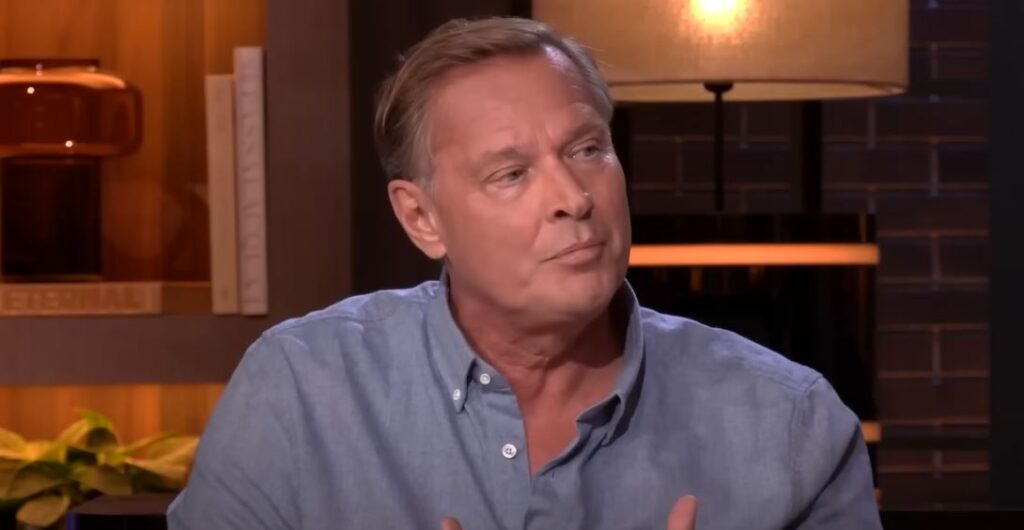
Onno Hoes is still a complex figure whose life exemplifies how personal relationships can influence public careers. A seasoned politician with a stellar record, Hoes gained national recognition for his leadership as Maastricht’s mayor as well as for his union with entertainment legend and television producer Albert Verlinde. In 2001, when same-sex unions were just starting to gain acceptance in European politics, their partnership was greeted with optimism and praised as a particularly progressive milestone.
Hoes and Verlinde represented a new cultural dynamic in the early years of their relationship: the fusion of media genius and political prestige. Their union, which is commonly seen as a symbol of Dutch inclusivity, almost effortlessly became a mirror of contemporary acceptance. However, the relationship endured the silent strains of intense public attention behind the camera flashes and glamorous appearances. The once-celebrated couple had become a symbol of how public scrutiny, even for those used to the spotlight, can have a significant impact on private life by the time of their 2014 divorce.
| Attribute | Details |
|---|---|
| Full Name | Onno Hoes |
| Date of Birth | June 5, 1961 |
| Age | 64 years |
| Nationality | Dutch |
| Profession | Politician, Consultant, Advisor |
| Political Party | People’s Party for Freedom and Democracy (VVD) |
| Former Spouse | Albert Verlinde (2001–2014) |
| Sibling | Isa Hoes (Actress) |
| Notable Roles | Mayor of Maastricht, Chairman of CIDI |
Hoes’s dual roles as a cultural icon and civic leader added to the pressure. Discretion is money in politics, and visibility is power in entertainment. Despite being intriguingly complementary, this contrast was also extremely contradictory. He had become a master at manipulating public opinion over the years, but the relentless media attention to his private life started to erode the boundaries he had once carefully upheld.
The pivotal moment occurred in 2014 when Dutch media released covert video of Hoes going out with a younger man. The leak generated equal parts fascination and indignation. Some questioned his judgment as a public official, while others defended his right to privacy. The event, which came to be known as “Onnogate,” demonstrated how quickly the media could go from praising representation to sensationalizing human frailty. With remarkable composure, Hoes admitted his error and resigned as mayor, citing the city’s right to be free from personal scandal.
During this time, Albert Verlinde’s dignified response was noteworthy. An entertainment industry veteran, Verlinde handled the media frenzy with remarkable poise, focusing on respect for one another rather than animosity. Despite being openly discussed, their split never turned sour. In a sense, both men demonstrated a level of professionalism that was strikingly uncommon in a culture that is dominated by scandal. They demonstrated that private deaths do not always translate into public shame.
It’s interesting that Hoes’ fortitude during this time was praised. He proved that professional credibility can endure even after public controversy by moving into advisory roles within the Dutch government and corporate sectors the following year. His consulting work was seen as extremely effective and based on real-world experience, with a particular emphasis on governance and strategic communication.
In the meantime, Albert Verlinde’s television appearances and production endeavors continued to dominate Dutch entertainment. His business, Albert Verlinde Entertainment, thrived as one of the top creative organizations in the Netherlands, creating critically and commercially successful theatrical productions. Verlinde’s reputation as one of the nation’s most resilient showrunners was further cemented by his remarkable ability to remain creative and focused in the face of personal turmoil.
Hoes and Verlinde’s relationship developed into one that was profoundly respectful but also nearly platonic over time. According to reports from 2019, they continued to communicate occasionally, bound together by a shared past and enduring love. LGBTQ+ couples navigating visibility in public life have found their maturity in managing the fallout from their split especially inspiring. It proves that vulnerability and dignity can coexist, which is a lesson that is remarkably pertinent in the age of constant digital exposure.
The Hoes-Verlinde story brought to light larger societal issues in addition to their own personal story. It emphasized how difficult it is to strike a balance between openness and intrusion in the era of constant media. Legal equality for LGBTQ+ citizens had already been attained in the Netherlands by the middle of the 2010s, but social acceptance—especially in leadership roles—still required careful negotiating. In that regard, Hoes’ prominence as a gay politician was especially novel since it dismantled symbolic barriers and addressed prejudices that remained prevalent even in progressive circles.
Onno Hoes has taken a more subdued, calculated approach in recent years, concentrating on policy design and consulting. He has influenced programs that promote ethical governance and civic engagement by drawing on his political background. His post-political career has significantly improved his public image, observers observe, turning him from a controversial figure to one of introspection and development.
Actress Isa Hoes, his sister, frequently speaks highly of him in interviews, praising his unflinching optimism and emotional fortitude. Their combined prominence in Dutch culture—he in politics, she in movies—creates an image of a family that is incredibly sensitive to the demands of both the arts and public service.
The tale of Onno Hoes and Albert Verlinde can be viewed as a case study of society and a love story through the prism of time. It depicts the conflict between personal truth and professional obligation, as well as intimacy and exposure. Even though their journey was filled with heartache, it also changed the definition of authenticity in public life. This tale is still relevant today, especially as upcoming generations of public leaders work to maintain privacy while pursuing transparency.
In hindsight, Onno Hoes’ legacy is characterized by perseverance rather than controversy. His ability to adapt is exemplified by his ability to change politically, personally, and emotionally. He demonstrated that reinvention is not only feasible but also incredibly empowering by putting hardship into perspective, much like many leaders who have been under close scrutiny.
